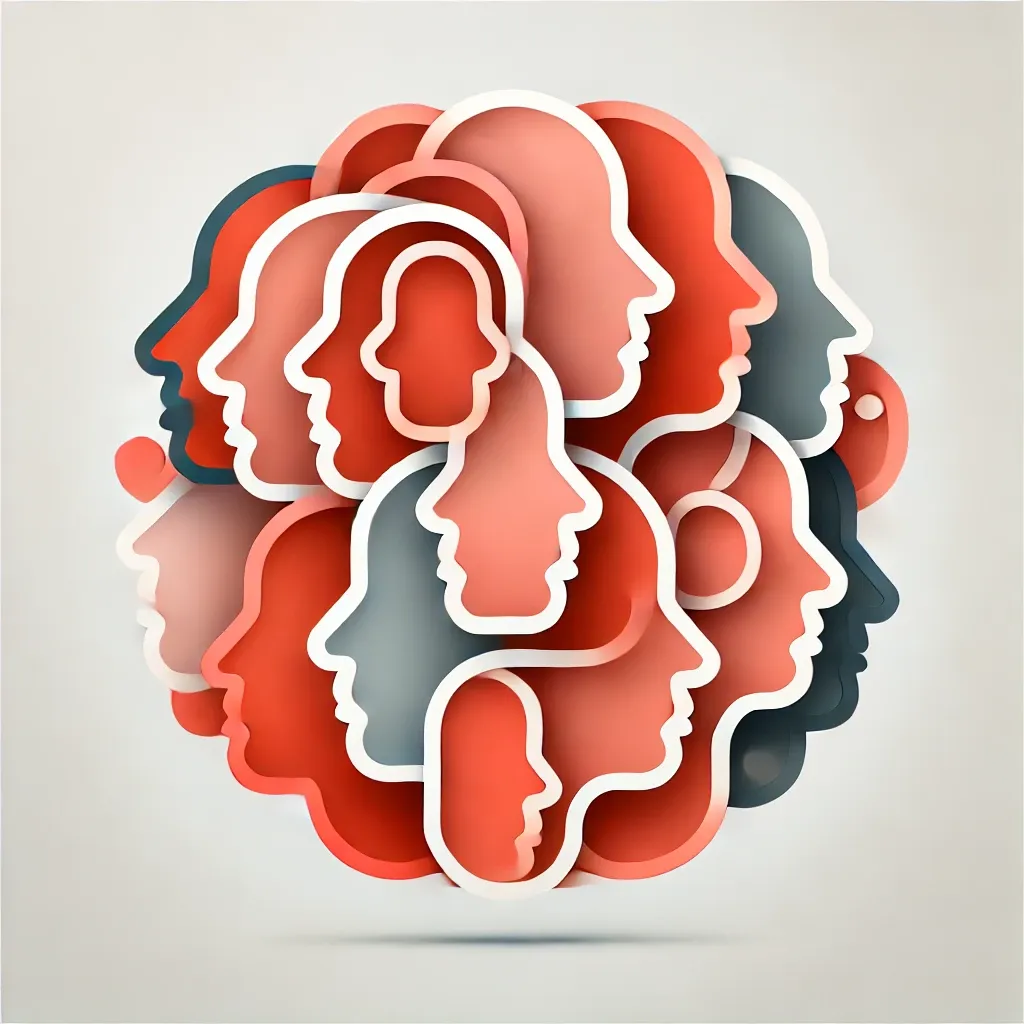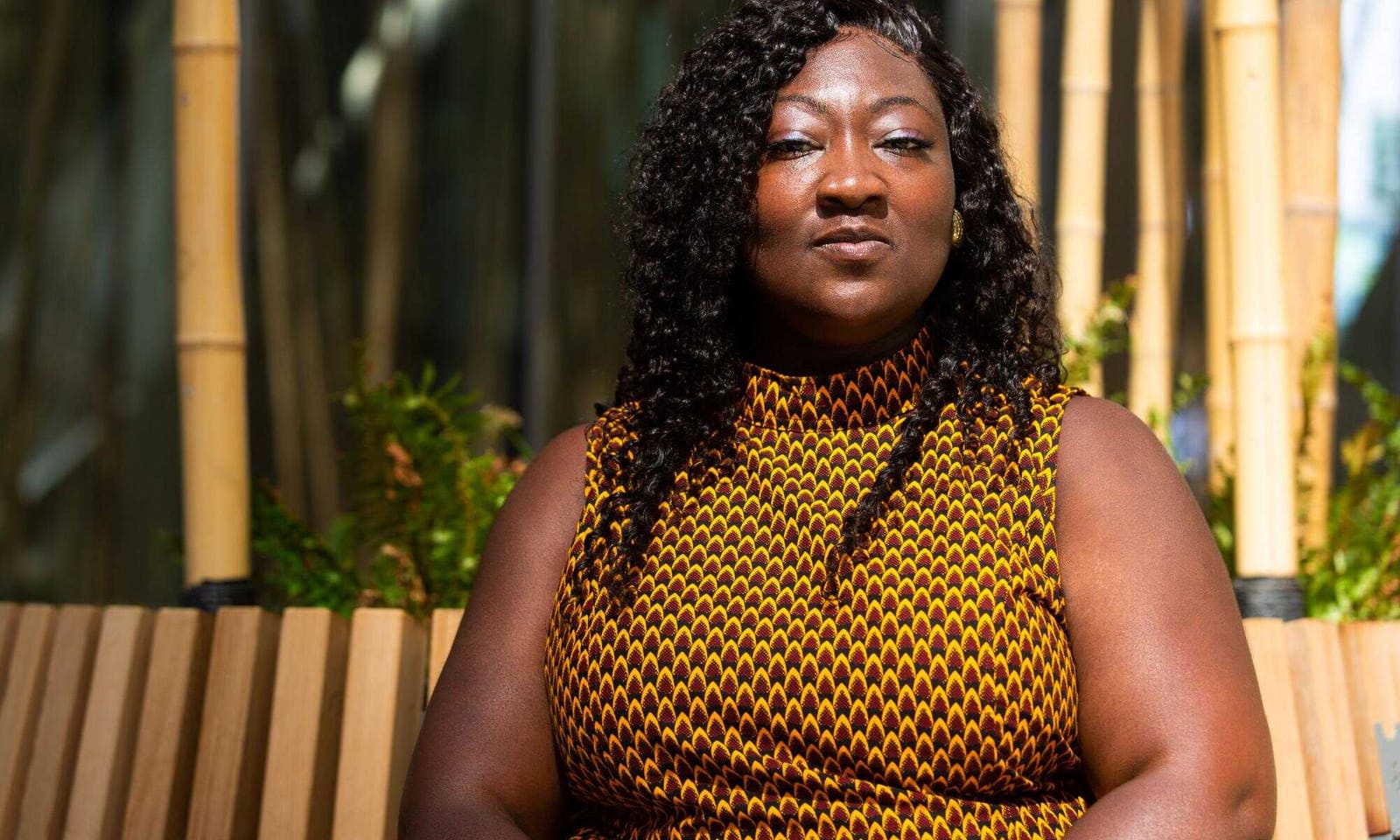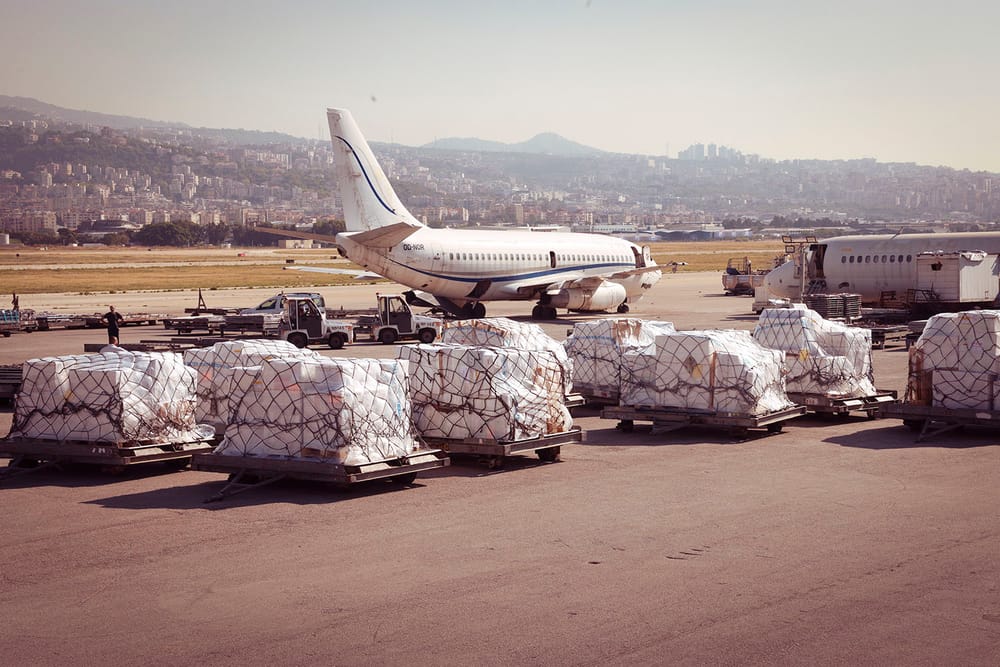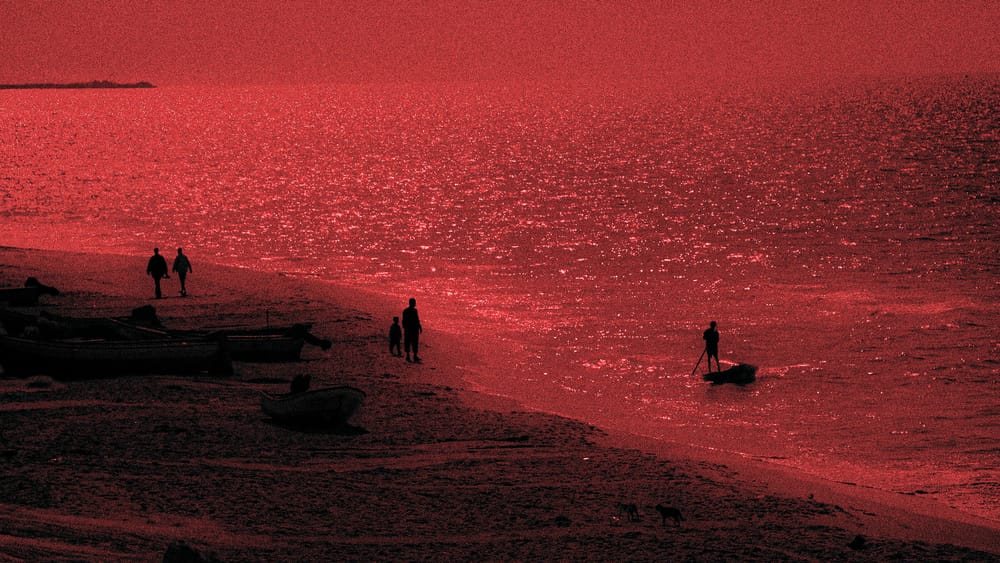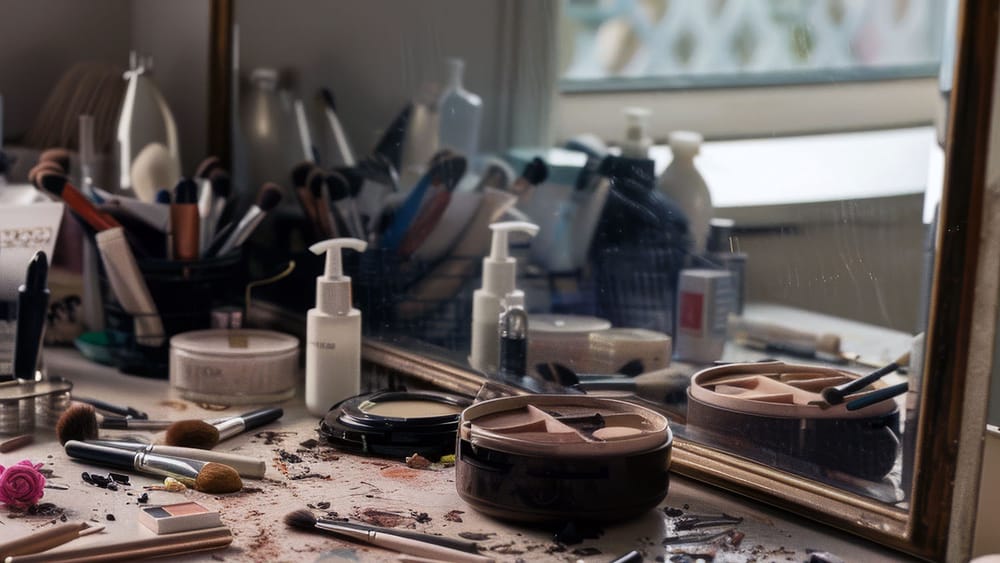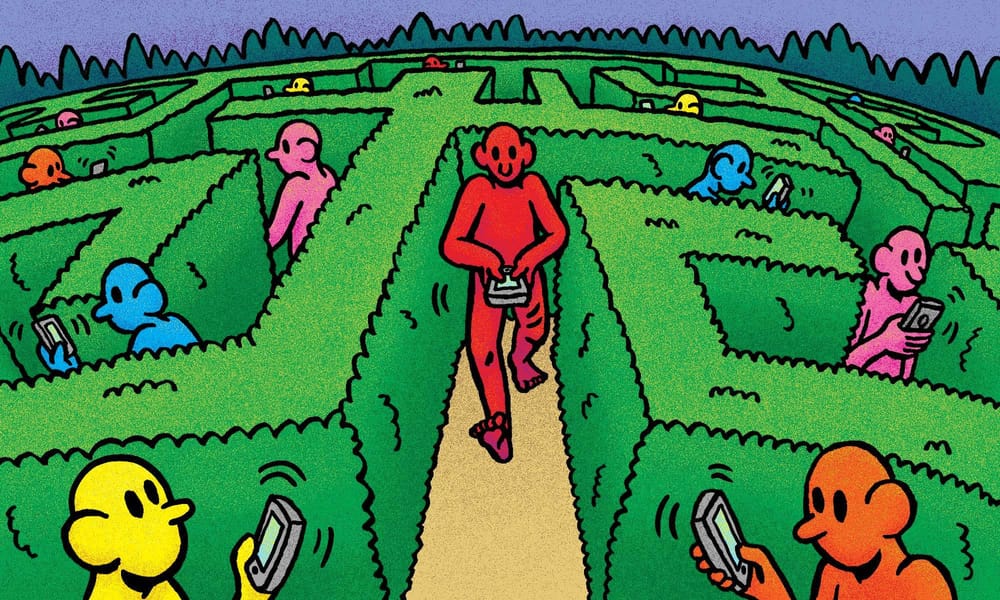In the face of the many seemingly unsolvable problems of the world, it takes courage, faith and determination to take on the role of a superhero. Colours Of A Changemaker is a series of interviews with Black, Indigenous and People of Colour from around the world who are using their vocation to create social and environmental change. As Gandhi once said, we must be the change we want to see in the world, and these changemakers are doing just that through their art, music, written works, social platforms and much more.
Phyll Opoku-Gyimah, popularly known as Lady Phyll, is a British political activist and the co-founder and executive director of UK Black Pride, Europe’s largest pride celebration for LGBTQ+ people of African, Asian, Caribbean, Latin American and Middle Eastern descent. She is also the executive director of Kaleidoscope Trust which is a UK-based, international LGBTQ+ human rights charity that works to uphold the human rights of LGBTQ+ people across the world. Through her activism that spans two decades, Lady Phyll has fought against racism within the LGBTQ+ community and championed equality and inclusion for LGBTQ+ People of Colour across Europe and beyond.
I spoke to her about decolonisation, the work she does with UK Black Pride and Kaleidoscope Trust and her personal journey that led her to a life of activism and championing human rights.
What is the story behind the name Lady Phyll?
I’m often asked where did that come from. It’s always been a pet name, a nickname, but it grew the legs and arms it needed when in 2016 I rejected quite gracefully an MBE [Member of the British Empire]. So it’s not a title bestowed upon me by the Queen but one that really stuck after I turned down the honour.
Can you tell us why you decided to decline the MBE?
Yeah, so I guess the basis on which I rejected the MBE in 2016—and for those that don’t know, the MBE, . . . CBE [Commander of the Order of the British Empire] and OBE [Officer of the Order of the British Empire] and so forth . . . are all honours and acknowledgements and accolades the Queen hands out in her New Year’s Honours list. For me, in understanding the toxic nature of the Empire and what colonialism did to many of the countries I work in and the country that my parents are from, I couldn’t possibly accept anything that really sets out to amplify other things that are not for people that I’m serving. If you are working within a Commonwealth space and you know that there are laws and legislation which penalise LGBTQ+ people, why would you accept that?
Don’t get me wrong, I take nothing away from those who have accepted their accolades, and I guess it’s a huge achievement to be acknowledged by the Queen, but at the same time, I think that there’s a lot that needs to be done in recognising the history and the herstories of what has happened in the past, to remedy and try and rectify that through reparations or a really meaningful apology and an acknowledgement of how much the UK and others have benefited through colonisation and everything else.
You are quite politically active as well, could you talk a bit more about that aspect of your activism?
I think my activism or the work that I do falls into many different areas, and activism is not one-size-fits-all. So from a young age, I have always challenged the notion of being taught about Henry VIII and his wives and the battle of Hastings, 1066, and not really hearing about African and Asian history and where we’ve come from, our cultures, our traditions, our heritage. And much more so . . . in being a very open and out lesbian woman who’s part of the LGBTQ+ community, I felt that when we don’t see ourselves in mainstream activities, [we] often have to create the spaces to be able to be seen and heard and feel represented. And I guess when we talk about structural and systemic racism and what we see in society—whether it’s the inequalities and absolute discrimination around Grenfell, what’s happened with Windrush and when Caribbean people came over and how they are treated now, down to how COVID-19 is disproportionately impacting Black and minority communities—you can’t help but to do something. You can’t help but to look at what some of these root causes are and many of those root causes [are] really going back to enslavement, slavery, colonisation, the way we are positioned economically [and] how poverty hits us.
So there’s so much to do, and I guess my role as an activist . . . is to really make sure we look at: how do we bridge those gaps? How are we lobbying so that they can hear our concerns? How are we putting case studies, and how are we researching and documenting this sort of information so it can be used as evidence? How are we protesting and how are we, importantly, standing in solidarity [with] others that we may not have the direct lived experience of but certainly understand the sort of multiple layers of oppressions that [they] face?
I would love to know a little bit about how you realised that this was your vocation. What was your personal experience in life that led you along this path of activism?
Oh, when asked this question, I feel sometimes it’s hard to answer and then it’s easier [other times]. So the easy answer is: being born a Black girl will come with an amount of work that you have to do just because of the history of how Black women have been treated. And then being visibly out will mean that there are things that you cannot stay silent on. There’s a quote from Bishop Desmond Tutu: “If you are neutral in situations of injustice, you have chosen the side of the oppressor.” So I guess that silence is not golden, and as Audre Lorde says, “your silence will not protect you.” So I think I’ve come into this because I know my purpose and I know that staying silent is not an option when the world does not treat us equally.
If you don’t mind, can you talk about what your coming out experience was like? How were you received by your family and others in society?
Well, I come from a very strict Christian background. Growing up, it was church, education, books and . . . so forth. And we have a family that you don’t bring shame and dishonour into that family household or onto the name. So when I came out, I wrote a letter to my family members—it was like a Dear John letter—and I guess for my parents, especially my mother, this was so difficult to understand because the country in which we are from still has a law that will criminalise lesbian and gay people. And we don’t actually have any word that translates into lesbian and gay.
My mother took it very badly. It almost felt like I had committed murder or something, you know? And it was hard for her, and it’s taken, like, the best parts of 18-plus years for her to be at the tolerance stage. I also had friends who are now acquaintances because they believe that their religion, faith and belief could not and was not compatible with my sexuality or sexual orientation, so you kind of lose friends. Then, I’m a mother, and now [my daughter] is 25 years old, but the whole journey of coming out and having been in quite, I would say, a volatile relationship and having to come out of that and be safe and then raise a child at the same time has not been easy. So I think if anyone wants to know about the journey, everyone’s experience is different and mine is certainly a process, because every time I’m asked about my journey, you have to come out again and again and again. And sometimes it means unearthing and opening up doors which you have shut, which may have been problematic or challenging.
But I would say to anybody that wants to come out, it’s not a must. Not everybody should have to come out, and it’s their own personal journey of being comfortable in who they are, and that doesn’t require you to be on every pride march and wave the flag. It’s just about your own peace of mind and where you believe you are at that precise moment.
That is really profound. You mentioned peace of mind... you come from a Ghanaian family, and as I have learnt, a lot of African cultures or belief systems embraced homosexuality but because of colonialism and Christianity, it’s become demonised. So I’m curious: on a personal level, how did you reconcile between those two ideologies? Because you have your Christian side but then you also know that your Ghanaian culture embraces homosexuality.
Yeah. There’s this thing that you often hear people say, that being queer is un-African, and actually, it’s not. We’ve had a long, long history of wonderful queerness . . . I guess this is where colonialism has shaped the narrative of what is deemed to be right and wrong. And in my own background or my growing up—and as I said the country that I’m from doesn’t have a language to describe lesbian and gay—that reconciliation has come from me understanding myself. And it’s been an iterative process, right? It’s been one which will continue to happen because I grew up with the Bible and I grew up knowing that Christianity was the route path for me in terms of what my parents had instilled in us as our values. And I have also looked at my own healing process, right? And that healing process is the part which is ongoing for me: making sure that my cup is full so I’m able to give freely and do the work that I do; making sure that I’m creating a path for myself and others so that when we are trying to reconcile our sexuality or sexual orientation that people feel supported. It’s that sense of responsibility really that I believe that I have to the community, in showing up and showing out on what healing could look like. . . . And it’s not easy, so I don’t want to come across as if [I’m saying], “Oh, come out; it will be fine; it doesn’t matter if you’re a Muslim woman who happens to be in Bradford, or you’re a Pakistani young man who has got challenging parents.” It is hard and it’s about doing this in safety and with a network [and] having your tribe and your family, or chosen family I should say, around you.
I think that’s where the role of intersectionality comes in. Each individual, their culture, their background as well as their experience as an LGBTQ+ person is different and everyone’s struggle is different for that reason.
Absolutely.
And I understand that you started UK Black Pride with this in mind. So could you elaborate on what inspired you to start UK Black Pride and what kinds of issues or problems you wanted to solve that were not being addressed by the existing pride movements in the UK?
Before it was UK Black Pride in 2004, I was running an organisation with some other sisters called BLUK (Black Lesbians in the UK), and we were much more online. So we took our activities offline, and we decided to come together to really connect and look at our shared commonalities, how we support one another and show up for one another. And it was at that point—I was walking back to the bathrooms and walking through the grass and I said, “This feels so, so good. I feel absolutely liberated to be amongst like-minded people: women who really understand my daily challenges of racism, sexism, misogyny, misogynoir. This feels very much like a Black Pride. Like what they have in Atlanta, the States.” I said, “We are going to have a Black Pride in the UK to look at not just how we celebrate but how we challenge the homophobia, biphobia and transphobia within our own communities and outside.”
Now people laughed and giggled and said, “Oh my gosh, you’re crazy. We’d never have a Black Pride in the UK,” but we did. And in 2005, I went to some leaders in our LGBTQ+ community, and we asked them for support, for guidance. You know, how do you do it? How do you run a pride? What does it look like? And I kid you not, in that space with people who were supposed to understand marginalisation, the oppressions that LGBTQ+ people face, they sneered and laughed and a person even said—and excuse my french—“F*ck off and go back to where you came from.”
This is one of the reasons which has been a driver to have a UK Black Pride, because regardless of whether you’re part of a marginalised group, it doesn’t make you exempt from being a bigot. And it showed us that we’re not just all the same; we don’t have the same experiences; we understand discrimination in different ways based on the different intersecting factors; and we always spoke about intersectionality or taking an intersectional approach to our work.
So we’re about the amplification of Black and Brown queer people. We are about making sure we remove those barriers to participation. We are also about supporting one another regardless of your status—whether you’re an asylum seeker or refugee, whether you’re working class, whether you’re young, you’re mature, you’re trans, you’re non-binary, whatever that may look like for you—that space is carved out, created by us, for us. And that’s the important point about UK Black Pride.
That’s awesome. So it’s been 16 years now since UK Black Pride started. How much has the LGBTQ+ community changed in terms of the racism that existed within it? Do you think it has become better now in that aspect?
Well yeah, I think that lots have changed. In 2005, you had a real rise in hate crime, and you had the National Front, the BNP marching the streets and really spouting their nasty rhetoric around Islamophobia, homophobia; they were sexist and certainly racist. But we can also say the same for our inward-looking communities, and when you think about when UK Black Pride started, nobody wanted to touch us; nobody wanted to work with us. They saw us as a very separate organisation. There were times when I received death threats and hate mail and people would have interviews saying, how dare we have a Black Pride and what is the need for it? Why don’t we just join the “normal pride,” whatever that’s supposed to mean. Now fast forward into 2019, 2020, we have become a legitimate, definitive voice in the Black and Brown communities. We have managed to speak to our lived experience and really make sure it is heard, whether it’s through lobbying parliamentarians, whether it’s through our activism of being on the streets or writing briefs or just amplifying people’s stories and collaborations.
[However,] we still see racism in different ways. We have seen the resurgence and the uprise of Black Lives Matter because of what happened to our brother George Floyd, but that was not new for us. That was an everyday thing, the violence that happens to our bodies. So the changes that we have seen: we have more voice and agency; we have more support and allies who are there for us; but we are still experiencing violence on our bodies and our minds especially when it comes to our trans siblings and our non-binary siblings who face horrendous attacks through the media on a daily basis. So I guess things do change, but then different communities face different challenges, and it’s about how we show up for them. And that’s what we do in UK Black Pride.
Circling back to political activism, why is it important for LGBTQ+ people, especially Brown and Black, to gain more political power? And how does one go about doing that? Because I think for a lot of young people who kind of want to be activists, this is something that is maybe a bit intimidating?
Yeah, absolutely. And you know you’re right [that] things can be quite intimidating because we have structures and institutions which are not fully reflective or representative of us. So it means when entering into spaces around parliament or people with decision-making powers, it will feel daunting.
But I guess for me, when we think about [the slogan] “Nothing About Us Without Us,” we know better than anyone what we need to change and how we need to bring about that change. And there is an analogy of building your own table—and I have explained UK Black Pride as an example of how we carve out those spaces and how it’s empowering—but I think there is something that we can all do. There are so many networks and organisations—grassroots organisations—who are doing the work, who are at the forefront of really setting about change. And if you’re interested, you can join them; you can read up and research a bit more about them. You can figure out: what do you have capacity to do? If you wish to be part of the group, do you also want to look at a collaborative, or say, a creative approach? Are you a drawer, a painter, a writer, a finance person? How do you use your skills which are transferable to activism? . . . How do you bring that whole self of you, with your knowledge, to the table saying, “This is what I believe I can help or assist in doing.” Some people don’t want to take to the streets and that’s fine. Not everyone should have to hold up a placard, but you have ways of getting involved . . . So I think that there are so many things that you can do, and there are resources out there to support you. But from a UK Black Pride perspective, [for] anyone that wishes to get involved, the door is open, and we’ve got a whole network of people to support you in your journey of helping us to amplify and uphold what is right.
And if you don’t mind, if I can just speak about Kaleidoscope Trust, that is exactly what we do in terms of our work. . . . It’s an international charity that works on LGBTQ+ rights. And much of that is around how we focus on defending LGBTQ+ people right across the Commonwealth because we carry out our work in so many distinctive ways. And I’ve seen a beautiful coming together of our human rights defenders [and] civil society to really bring about change but you also can’t help but to think about some of the pain and the struggles and the violence placed upon their bodies because of the laws that prevent them from living as they are.
And that is why we do the work we do: to make sure that activists, changemakers and community organisations around the world have funding and resources and training they need to get their work done. And then working alongside grassroots organisers with governments and key policy and decision-makers so that they themselves can advocate for the changes they wish for in their communities. And I guess, importantly, what Kaleidoscope Trust does [is] we kind of move through those corridors of power . . . to make sure the global LGBTQ+ issues are a priority where funding’s concerned and legislative and policy decisions are concerned. . . . So there is a lot. I cannot help but to be passionate about what we do and what needs to be done.
Yeah. I’m glad you mentioned Kaleidoscope Trust. I believe its main focus is on the colonial laws in Commonwealth nations and reforming and getting rid of some of those laws. Can you elaborate on the kind of decolonising work that you do with Kaleidoscope Trust?
Yeah. I mean, one of the things that I know you talk about is ‘Decolonise Your Mind’ and Kaleidoscope Trust really does set out to work with other partners as well to [reform] those Victorian, colonial-era laws that exist. And something that springs to mind is Angela Davis when she said, “Radical simply means grasping [things at] the roots.” And I guess decolonisation work is the same. In many ways, we’re going back to an understanding of ourselves and our cultures, free from the White gaze and colonial structures. How we dressed, how we understood gender and sexuality, how we understood community—all of that has been really impacted by colonialism, and our work at Kaleidoscope Trust is to undo that. To take forward everything that we’ve learnt about how we survive in the world and reconnect with ways of living and thriving and surviving and showing up for each other that is not rooted in the violence that is seen.
And I could speak loads about what India has done around repeal[ing] 377, which was the removal of the penal code, and it warms my heart and gives me so much joy. But of course, once you remove a penal code or that legislation, which has criminalised same-sex intimacy, there’s still other work to do because of our intersecting identities. We still need to address situations of women and girls’ rights; we still need to address the poverty that is faced in, say, slum areas.
And then we can move on to Botswana as well, [that] is looking at, I think, it was a repeal of 164, same-sex intimacy and how they are criminalised. [The team on the ground in Botswana] worked and campaigned so hard, and it’s not a one-day turn-around. This is years and years of bringing together people who could be litigants, lawyers, expertise from areas of research and policy in order to bring about that change and challenge the legislation in those countries. . . . So decolonising, for me, is about really changing that mindset [and] thinking differently than how we would—because we have gone through a realm of how our minds have been colonised; our language, our culture has been ripped from us; our resources have been taken—and really unpicking and understanding what was there before.
I guess what we also try to do from a Kaleidoscope Trust perspective is: when we are working with our Global South comrades, we take a really intersectional approach, and we understand that the dynamics and optics will be different and we cannot impose any Western ways of working because it won’t suit. Otherwise, we end up continuing the same bad practices which have happened for years and years and years.
From what you're saying, it seems like one of the biggest challenges to decolonisation is that colonisation and colonial-era thinking are so deeply rooted in the cultures of the former colonies, even though the British left many years back. What are your general thoughts on that deep-rooted colonial thinking?
Well, this is why I do and Kaleidoscope Trust does the work it does because there is so much that is so deep-rooted, as you mentioned, that changing that is going to take years of reversing. But if we have got many more allies—people who are willing to put their head above the parapets—if we have got people in those systems and structures who are able to help us dismantle that, that is going a long way to affecting the change that we want to see. And I guess this is what we are doing slowly but surely, bit by bit, and understanding the sensitivities and the political nature of how countries operate because it’s different continent to continent because of the laws that are in place.
Switching gears to a lighter note, I noticed that you always mention your daughter in almost every interview you do, and I can tell you’re really proud of her. I wanted to ask you: what does motherhood mean to you, and what has that journey been for you?
Yeah, I do. I always mention my daughter because she’s like my backbone and my heartbeat. I guess motherhood to me means protection, security, unconditional love, support. It means a form of making sure there’s some discipline instilled but mostly about providing your child with values that take her through her journey of life because she was born into this world as I was—as a little Black girl—and the world is not going to treat her favourably. So I want to provide her with the necessary tools that she needs to be able to navigate this world.
And how has your experience been as a lesbian mother? What are your thoughts on how society treats or views lesbian mothers?
Well, it’s a strange one really because I guess growing up and then being out and having a child, there was always this perception that, “Oh, she’s not really a lesbian because she has a child and she must have had some form of an intimate relationship with a man,” because people stereotype and people automatically put you into boxes. So society’s views on me personally—that doesn’t bother me, worry me, and I’m not in the slightest bit interested in what they think if it’s negative. What we have to do is make sure that there are many more spaces and platforms and rooms for mothers who happen to be in same-sex relationships or identify as lesbian or bisexual to be able to talk about it freely and unapologetically. And that way, we can usualise the conversation around societal views on lesbian mothers.
You kind of touched on this a bit but to be where you are today now—a strong, Black lesbian woman, activist, mother, boss—I’m sure you have had to go through a journey of healing. I’m curious about what your process of healing was.
Healing is a process and it’s ongoing for me. I think I mentioned earlier that I look at it as: how do we fill the cup? How do I do that so I can give freely and openly to others? I think the healing [is] really supporting myself in understanding when I can say no without apology; how I can take time out just to read a book or sit in silence or just be with myself, at one with myself, because self-care is important. I think when you enter into an arena where you have to go into battle sometimes—[that’s] what it often feels like—when you have gone into that battle and you come out, there’s going to be parts of your body and your mind that feel wounded. So you have to find a space to unwind. You have to find a place which will allow your mind to relax, whether that’s crying, whether that’s reading a book, whether that’s going for a run or whatever that may look like, but the sense of responsibility of your own healing starts with you.
Lastly, what would you tell your younger self if you had the chance?
My younger self. Oh wow. I’d tell my younger self that your Blackness is perfect, and you are perfect. The world will set and send things your way that will not be pleasant. You may be hated for who you are but just know that I’m rooting for you and you are wonderful in every single way, shape or form.
You can follow Lady Phyll on Instagram here and Twitter here and you can learn more about her work on the UK Black Pride and Kaleidoscope Trust websites.


